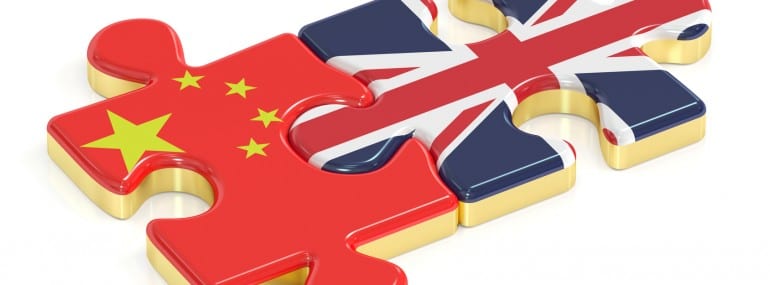
The House of Lords International Relations and Defence Committee has today published its Report on China: Trade and Security. The full report is available at: https://publications.parliament.uk/pa/ld5802/ldselect/ldintrel/62/62.pdf.
A summary of the key findings can also be viewed here: https://committees.parliament.uk/committee/360/international-relations-and-defence-committee/news/157378/government-lacks-clear-strategy-on-UKChina-trade-and-security-relationship/
Key conclusions and recommendations
- The Government told us that it has made its approach to China clear in public statements and in the Integrated Review, but these statements, and those made to us during this inquiry, have been vague and do not constitute a strategy. We call on the Government to produce a single, coherent China strategy … and a plan for how it will execute that strategy. The strategy should seek to resolve the ambiguities in the current Government’s China policy.
- Taiwan will be a crucial issue for the US and its allies, including the UK. Even if a military confrontation would be risky for China and perhaps not in its interests … the prospect of miscalculation is always present …. An assessment of risk should consider both the probability and likely consequences of conflict in Taiwan; in this case the UK’s security relationship with the US, its global economic position and the Government’s tilt to the Indo-Pacific region mean that its interests would be directly threatened.
- Establishment of effective and reliable partnerships is critical if the UK and its allies are to respond to the challenges posed by China. These partnerships can take different forms … but they will need to represent sufficient aggregate political, economic, and scientific power to be able to counter that of China, and to persuade uncommitted nations to align with these groupings.
- The challenge of climate change cannot be addressed without engagement with China. We call on the Government to explain how it will include considered co-operation with China on climate change as part of its China strategy. This is particularly important given the UK’s leadership role at COP26.
- Official Development Assistance is a vital aspect of the UK’s soft power, which can be used to address both traditional and non-traditional security challenges. As the UK seeks further engagement in the Indo-Pacific, Official Development Assistance cuts may create a void which may be exploited by China and the UK’s other competitors. We urge the Government to restore Official Development Assistance to 0.7% GNI before significant damage is done to the UK’s capabilities in this region and more widely
- The issue of how the Government intends to balance economic relations trade concerns with upholding values such as human rights and labour protection should be front and centre of its new China strategy. More generally, the Government should incorporate an atrocity prevention lens in its overall approach to trade. Current atrocity prevention tools and strategies have fallen short, so we ask that the Government outlines how it intends to strengthen them, including the effective use of sanctions.

On Xinjiang, Uyghurs and Genocide the Report says this:
There has also been strong political opposition to negotiating a free trade agreement with China,
prompted by concerns about human rights abuses and allegations of genocide
in Xinjiang. Charles Parton told us that:
“Xinjiang and the genocide—and it is genocide under the UN
convention’s description—have to be taken into account. This is not
just about the sheer goodness and badness aspect but the reputation
of companies of ours that are trading with those that are producing
materials through forced labour and benefiting from what is going on
in Xinjiang….
The Report records that:
“The UK has obligations under both domestic legislation and international
agreements on genocide and forced labour. These include:
• The Convention on the Prevention and Punishment of the Crime of
Genocide, initially approved in 1948, which the UK acceded to in 1970.458
• The Rome Statute of the International Criminal Court, establishing
the International Criminal Court, ratified by the United Kingdom on 4
October 2001.
• The principle of ‘responsibility to protect’, which was adopted by the
UK at a UN World Summit meeting in 2005. The Government reaffirmed
its commitment to the principle in its response to the House of Commons
Foreign Affairs Committee report on ‘Global Britain: Responsibility to
Protect and Humanitarian Intervention’.”
The House of Lords Inquiry also said on Taiwan: “Taiwan will be a crucial issue for the US and its allies, including the UK. Even if a military confrontation would be risky for China and perhaps not in its interests, similar things have been said about many past wars that did occur; the prospect of miscalculation is always present. Should such a conflict draw in China and the United States, the consequences for the UK—and indeed the wider world—could be catastrophic. An assessment of risk should take into account both the probability and
likely consequences of conflict in Taiwan; in this case the UK’s security
relationship with the US, its global economic position and the Government’s
tilt to the Indo-Pacific region mean that its interests would be directly
threatened. The uncertainty over the future of Taiwan therefore represents a
major risk to the UK.
On China and the developing world it says: “The Belt and Road Initiative, and the Digital Silk Road component, are key elements in China’s drive to make the international order more ‘Chinacompliant’. Some argue that the BRI allows China to apply political leverage through debt, though we also heard that China is increasingly recognising that this approach may not be sustainable. The subversion of international institutions and indebted nations’ compliance with China’s wishes should be given greater prominence and consideration

On dependency and self reliance the Inquiry told Government to “provide further information on the cost to the UK of” (1 billion) “lateral flow tests from China and the companies that were involved, and outline measures it is taking to ensure that products of this kind can be manufactured in the UK”
Guardian Report:
Boris Johnson has been accused of avoiding a clear strategy on China for fear it will force him to make difficult decisions that put human rights ahead of enhanced trade with the world’s second largest economy.
The allegation of a “strategic void” is made in a major report on the future of UK-China relations by the House of Lords’ international and defence select committee.
It warns that given the trajectory of China’s global ambitions, the UK must be prepared for a “potentially long and severe period of disruption in its trade and political relations with China”. The Conservative-chaired committee warns this new realism about China and its goals requires a depth of understanding of the country across the UK government that is currently lacking.

The report, full of insight from former ministers and defence chiefs, points to “inconsistencies, uncertainty and lack of a central strategy” in UK government relations with China.
It says: “There is no clear sense of what the current government’s strategy towards China is, or what values and interests it is trying to uphold in the UK-China relationship.”
After questioning ministers and China experts, the committee concluded: “It seems that the government is using a policy of deliberate ambiguity to avoid making difficult decisions that uphold the UK’s values but might negatively affect economic relations.”
Any strategy that is published should put the trade-off between economic engagement and human rights at the centre of the discussion, the report says.
The peers found that among its witnesses “the general consensus was that the government has been vague in how it plans to balance economic relations with China with upholding the UK’s values, and is using this ambiguity to attempt to ‘have its cake and eat it too’.”’
The report urges the government to be more explicit that China represents a threat to the west, and is not just, as UK ministers claim, a systemic rival.
They say their inquiry had “conclusive evidence that China poses a significant threat to the UK’s interests, particularly in light of the government’s announced tilt to the Indo-Pacific region. Tensions over Taiwan, China’s desire to reshape the international rules-based order in its own interests, its attempts to restrict freedom of navigation, and its assaults on human rights extending even to genocide all pose serious challenges to our security and prosperity – including to our international trade and investments over the longer term.”
This will require the UK government to do more to protect the international trading architecture, as well as UK infrastructure, even if this means coming into conflict with China and provoking what it describes as potentially severe and extended disruption to trade and cooperation. The report says “both the government and the private sector must be prepared to manage such periods of stress”.
The report urges the government not to pursue a free trade agreement with China at this time, and questions whether the government has thought through the implications of its tilt to the Indo-Pacific, including the dispatch of a carrier strike group to the South China Sea. It says it is not clear how a UK security presence is to be maintained in the medium term without cooperation with allies including France.
The report warns: “Even if not planned, there is a strong risk that future rhetoric from China will at some point provoke a major conflict. The ‘tilt’ to the Indo-Pacific implies that the UK will be less able to isolate itself from such an event. It needs to carefully consider its contingency plans.
“With the future presence of the Royal Navy in the South and East China Seas, it is not impossible that a UK naval vessel (rather than the US fleet) could be used by China as the test of their sovereignty, and therefore the start of such a conflict.”


